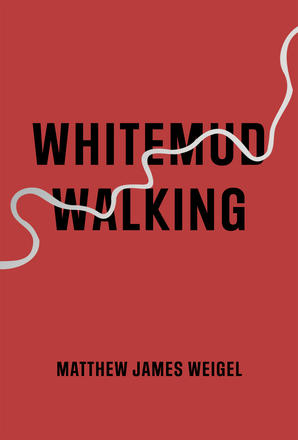Matthew James Weigel’s Whitemud Walking begins: “This book began as thoughts on treaty and my obligations to the land in this time. But it spiraled outward into a journey of understanding of all my relations.” This declaration well sets out what Whitemud Walking does over the next 160 pages: his poems often start in the archive with the many documents used by the state to acquire Indigenous land and control its people, from treaties, to land scrip and his grandmother’s enfranchisement file. But these searches quickly transform into stories about what the documents actually mean in his life, in the life of his family and those around him. Text is never just text: “This journey extends in every direction outward and inward. To the mountains. To all the ocean. To the stories told and yet to be told in the sky and stars. To the little bits of everything inside me. To all of time and to my ancestors and my descendants.”

Throughout the book, the archive functions both as state-sanctioned memory but also as a locus of state power in deciding what can be remembered and who can remember it. For Weigel, the archive is both a place for memory to die but also a place where memory is given new life as he begins to look at all the other archives and libraries his family carries with them. From “Inside the Pop-Up Box”:
“I’m in the library Canada keeps my kin in
and I’ve brought all the other libraries I’ve ever been in with me.
My mom’s library,
where as a child I saw a pop-up dinosaur
and rows of shelving
and drawers I thought must hold so many fossils.My dad’s library of tapes in the car . . . ”
Storytelling becomes the way memory lives afresh and the past beats with the urgency of the new. In “Place of Creation: No Place, Unknown, Or Undetermined,” he writes of finding his grandmother’s enfranchisement file. What is amazing about the poem is how it stitches the immediacy of finding his grandmother’s records with the stories he remembers of her that can never be filed: “I remember being in Hay River with her, at a table with her sisters. The kitchen was full of laughter. There was a special kind of joy in her face when she was home that I never knew here. I miss her every day.”
What I love about this collection is the many ways that Weigel dismantles the authority of official history. For example, in second part of the book, he works with Alexander Morris’s 1880 report on treaty negotiations by ripping Morris’s report apart so we only see the edges of the text separated by white space: the space becomes the poem, making us look at everything beyond the report that the treaties represent and can never contain: “Everything outside the treaty is the treaty.”
Similar to Weigel’s book in some ways, I’ve written about the numbered treaties in my book X: poems and antipoems. I would say Weigel’s book succeeds where mine failed by going deeper into the apparatus of memory and deeper into what these documents mean on the body and on people. Weigel goes beyond textual experiments to bring out the heart of what he is searching for. In this, White Mud Walking bears a lot of similarity to Jordan Abel’s The Place of Scraps in its interrogation of textual and institutional space through story and the search for family.
Whitemud Walking is exceptional both in its experiments and design but even more so in its power to bring the personal to the textual and the archive to the search for self.
Bios
Shane Rhodes
Shane Rhodes is the author of six books of poetry, including his most recent, Dead White Men (Coach House Books). Shane lives in Ottawa, on unceded Algonquin, Anishinabek territory. [provided for the 2018 Archibald Lampman Shortlist]

